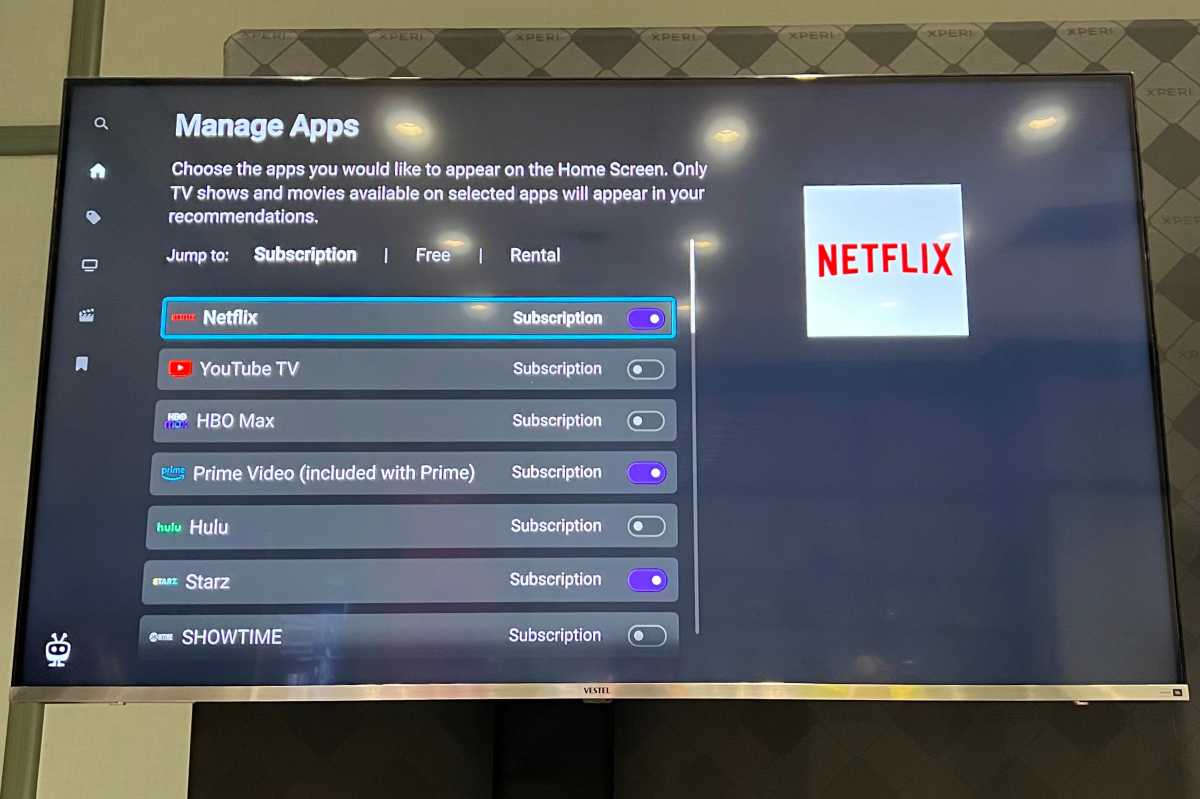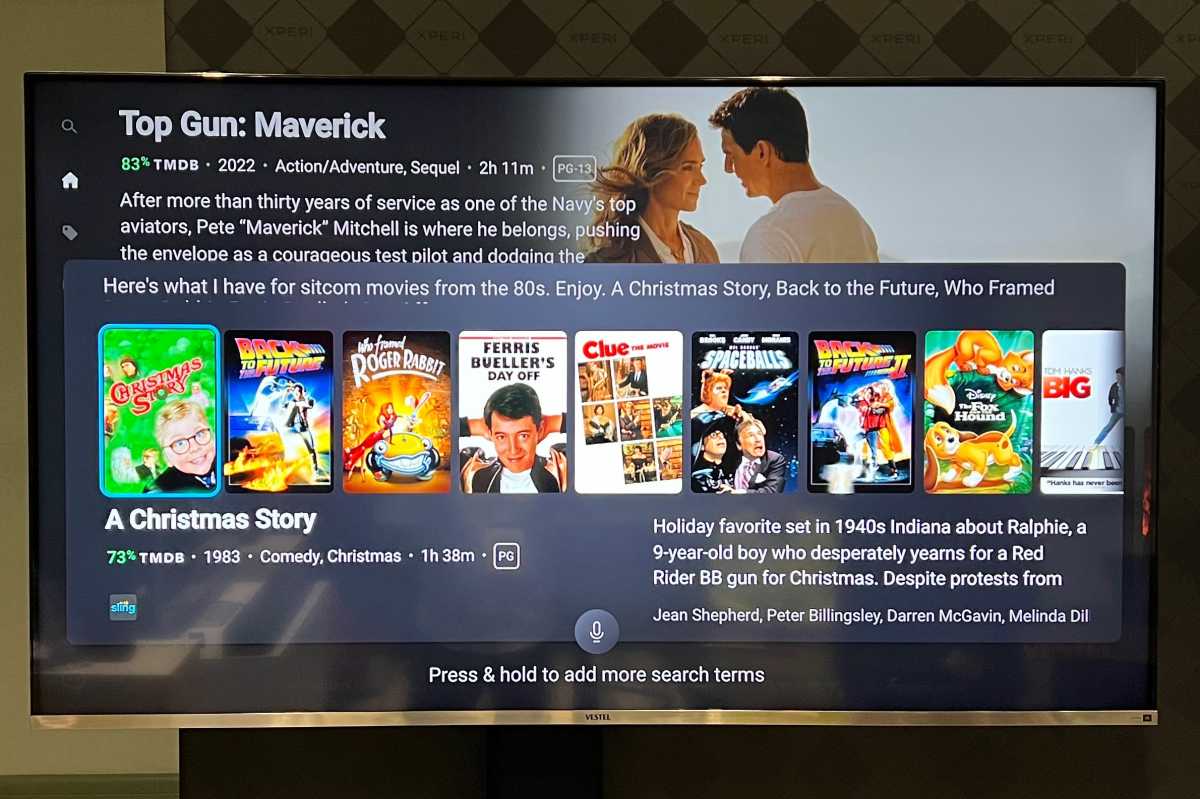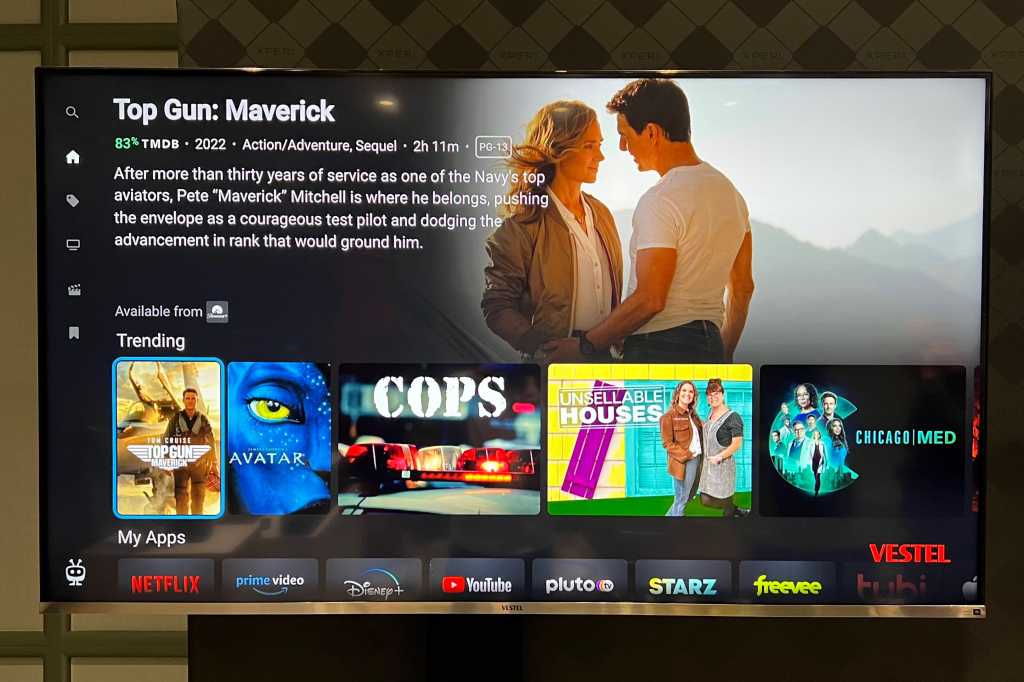Of all the companies showing off smart TVs at CES, the most intriguing comes from an unlikely source: Xperi.
If you’re not familiar with Xperi, you surely know the TiVo brand it owns. Last year, Xperi announced that it was building its own TiVo OS smart TV platform, and it will start showing up on televisions in Europe in the first half of 2023. The company demonstrated them in the United States for the first time at CES.
If you can shake any associations with TiVo’s DVR products—Xperi itself seldom talks about those anymore—TiVo’s TV software looks surprisingly useful.
Content over apps
Jared Newman / Foundry
TiVo’s smart TV home screen is largely focused on helping users figure out what to watch. It includes recommendations from different streaming sources, and users can add movies or shows to a watchlist for later viewing. For any given movie or show, you can see which streaming services offer it, and jump directly into the corresponding app to start watching.
TiVo also lets you control which sources appear on the home screen in the first place. That means you can hide recommendations from Disney+ or Amazon Prime, for example, if you don’t subscribe to those services.

Jared Newman / Foundry
For voice search, TiVo can handle detailed genre searches such as “animated movies from the 90s.” You can also narrow searches down with follow-ups such as “just the ones with Tom Hanks.”
Overall, the interface looks a lot like that of the TiVo Stream 4K, a cheap streaming dongle that Xperi launched a few years ago. While other platforms, including Google TV and Apple TV, have their own streaming guide features, TiVo feels more like a neutral party, with simple control over recommendation sources and no aggressive overselling of its own content.

Jared Newman / Foundry
Unlike the Stream 4K, however, TiVo OS is built around Linux. That’s supposed to make it more appealing to TV makers, as Xperi will allow them to share in the platform’s ad revenue and use their own branding on the home screen. Xperi says it has no plans to make its own TVs under the TiVo brand.
The only big question mark is app support. Unlike other major streaming platforms, TiVo smart TVs won’t offer an app store, and will instead come preloaded with major streaming sources. While Xperi is leaning on its acquisition of Vewd to bring more apps to the platform, the selection will likely be lacking compared to the likes of Roku, Apple TV, Fire TV, and Android TV.
Will TiVo TVs launch in the U.S.?
While TiVo hasn’t announced plans to bring its smart TV software to the United States, the company it wants to do so eventually.
To that end, Xperi is working with Amlogic to integrate TiVo OS in chipsets for the U.S. and European markets; for now, though, the company is focusing on Europe, with TVs coming from Vestel, Daewoo, Regal, Hitachi, Telefunken, and JVC, among others.
All of which means that it may be a while before you can actually buy a television with TiVo’s software. But the idea that you might someday want to doesn’t seem so far-fetched.
Sign up for Jared’s Cord Cutter Weekly newsletter for more updates from the streaming TV world.

